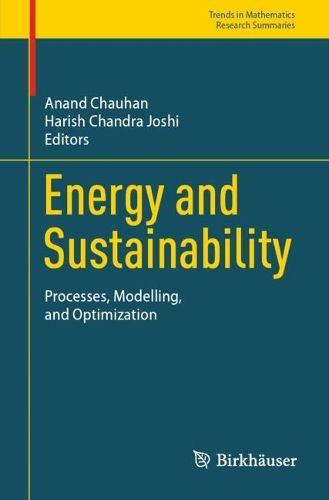Readings Newsletter
Become a Readings Member to make your shopping experience even easier.
Sign in or sign up for free!
You’re not far away from qualifying for FREE standard shipping within Australia
You’ve qualified for FREE standard shipping within Australia
The cart is loading…






This title is printed to order. This book may have been self-published. If so, we cannot guarantee the quality of the content. In the main most books will have gone through the editing process however some may not. We therefore suggest that you be aware of this before ordering this book. If in doubt check either the author or publisher’s details as we are unable to accept any returns unless they are faulty. Please contact us if you have any questions.
This volume addresses SDG 7 (Affordable and Clean Energy) and SDG 12 (Sustainable Consumption and Production). By 2030, therefore, people have to substantially increase their share of renewable energy. The book focuses on waste as primary sources of biomass that can fulfill energy requirements for sustainable development. It also discusses various related topics such as energy production methods, a mathematical model for the development of a sustainable biofuels supply chain, economic analysis, optimization techniques, multiple-criteria decision-making and mixed-integer linear programming and existing and emerging policies that encourage the switch to renewable energy. It is committed to fusing science and technology in a way that assures a sustainable future and addresses major topics on biofuels: biomass, bioenergy, biodiesel, bioethanol, biogas modelling and their supply chain management, inventory control and optimization.
The 2030 Agenda for Sustainable Development, adopted by all United Nations Member countries in 2015, provides a shared blueprint for peace and prosperity for people and the planet, now and into the future. The book uses an interdisciplinary approach and provides solutions to energy requirements by using emerging technology and nanotechnologies. It explores a technical breakdown of the tools that may be utilized to convert biomass into usable energy forms. At the end of the book, a description of the social and economic aspects of renewable energy and minimization of bioenergy cost is presented. The book is useful to students, researchers, industry experts and anybody in the adoption of renewable energy. It covers the complete course in the fundamentals of biomass feedstock and their supply chain management resources at the graduate level in engineering.
$9.00 standard shipping within Australia
FREE standard shipping within Australia for orders over $100.00
Express & International shipping calculated at checkout
This title is printed to order. This book may have been self-published. If so, we cannot guarantee the quality of the content. In the main most books will have gone through the editing process however some may not. We therefore suggest that you be aware of this before ordering this book. If in doubt check either the author or publisher’s details as we are unable to accept any returns unless they are faulty. Please contact us if you have any questions.
This volume addresses SDG 7 (Affordable and Clean Energy) and SDG 12 (Sustainable Consumption and Production). By 2030, therefore, people have to substantially increase their share of renewable energy. The book focuses on waste as primary sources of biomass that can fulfill energy requirements for sustainable development. It also discusses various related topics such as energy production methods, a mathematical model for the development of a sustainable biofuels supply chain, economic analysis, optimization techniques, multiple-criteria decision-making and mixed-integer linear programming and existing and emerging policies that encourage the switch to renewable energy. It is committed to fusing science and technology in a way that assures a sustainable future and addresses major topics on biofuels: biomass, bioenergy, biodiesel, bioethanol, biogas modelling and their supply chain management, inventory control and optimization.
The 2030 Agenda for Sustainable Development, adopted by all United Nations Member countries in 2015, provides a shared blueprint for peace and prosperity for people and the planet, now and into the future. The book uses an interdisciplinary approach and provides solutions to energy requirements by using emerging technology and nanotechnologies. It explores a technical breakdown of the tools that may be utilized to convert biomass into usable energy forms. At the end of the book, a description of the social and economic aspects of renewable energy and minimization of bioenergy cost is presented. The book is useful to students, researchers, industry experts and anybody in the adoption of renewable energy. It covers the complete course in the fundamentals of biomass feedstock and their supply chain management resources at the graduate level in engineering.